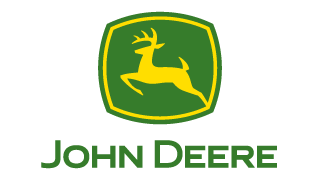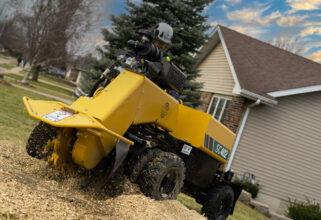Deere responds to FTC lawsuit
On March 17, Deere & Company lawyers filed a document responding to the Federal Trade Commission lawsuit that alleged the manufacturer uses monopolistic repair services and unlawful business practices in repair and service work. (The suit, Federal Trade Commission v. Deere & Company, was filed in the U.S. District Court for the Northern District of Illinois Western Division.) The question of “right to repair” has been contentious for years in automotive and other mechanical work. The issue has become more heated as manufacturers have embedded technology and software in equipment. When manufacturers create programs where only authorized dealers have the service tools to fully repair the onboard computers or other equipment components, some parties have cried foul.
In Deere’s recent answer to the lawsuit, its attorneys made several acknowledgements and admissions, including that it developed a proprietary service tool for its tractors. But the manufacturer denied several other claims, including that other tool and service options were functionally inferior and that its business practices are “unlawful or that it has violated any law.”
A few of Deere’s responses to the FTC’s 100+ paragraph complaint.
Paragraph 1
For decades, Defendant Deere & Company, a manufacturer of large agricultural equipment including tractors and combines, has throttled the ability of farmers and independent repair providers (“IRPs”) to repair Deere equipment, leaving farmers wholly reliant upon Deere’s network of authorized dealers (“Deere dealers”) for many key repairs. Deere’s increasingly sophisticated agricultural equipment requires a software tool to diagnose and repair problems that relate to electronic functions, and only Deere has the information and knowledge to create this essential tool. By making this tool available only to Deere dealers, Deere forces farmers to turn to Deere dealers for critical repairs rather than complete the repairs themselves or choose an IRP that may be cheaper, closer, faster, or more trusted. Deere’s unlawful business practices have inflated farmers’ repair costs and degraded farmers’ ability to obtain timely repairs, which is especially critical in times of planting and harvesting.
Deere answer: Deere admits that it manufactures large agricultural equipment, including tractors and combines. Deere further admits that it developed proprietary service tools known as Service Advisor and Customer Service Advisor, and that Service Advisor is available to independently-owned authorized Deere dealers and Customer Service Advisor is available to customers and independent repair providers. Deere denies that its business practices are unlawful or that it has violated any law and denies the remaining allegations in Paragraph 1.
Paragraph 20
In light of the unfair and anticompetitive conduct alleged herein, Plaintiffs seek an order from this Court (a) enjoining Deere from engaging in such conduct, (b) ordering Deere to make all repair resources that it makes available to its dealers, including Full-Function Service Advisor and any similar future repair tools, available to agricultural equipment owners and IRPs on reasonable and nondiscriminatory terms, and (c) ordering such other equitable relief as the Court may deem appropriate.
Deere answer: The allegations in Paragraph 20 consist of legal conclusions, and therefore no response is required. To the extent a response is required, Deere admits that the Complaint purports to seek the relief stated in Paragraph 20, denies that it has violated any law, and further denies that Plaintiffs are entitled to any of the relief they seek. Deere denies the remaining allegations in Paragraph 20.
Paragraph 83
Certain state laws prohibit Deere from requiring that Deere dealers purchase parts exclusively from Deere. The dealership agreement between Deere and its dealers, however, does require Deere dealers to “actively and aggressively promote the sale of Parts and Service” and “maintain . . . inventories of Parts”—with “Parts” defined to cover only those parts sold by Deere for Deere equipment. Moreover, Deere has the right to refuse to sell or ship parts and equipment to Deere dealers if Deere unilaterally believes that the dealer has consistently failed to perform its obligations under the dealership agreement—and to terminate the dealer outright.
Deere answer: The allegations in the first sentence of Paragraph 83 contain legal conclusions, and therefore no response is required. To the extent a response is required, Deere denies the allegations in the first sentence of Paragraph 83. Deere admits that Paragraph 83 purports to quote from one or more sources and refers to any such source for its contents and context. Deere further admits that the parties’ rights to end the dealership agreement are reflected therein. Deere denies the remaining allegations in Paragraph 83, including to the extent that they improperly summarize, paraphrase, or take the quoted language out of context.
Paragraph 132
Deere’s conduct as alleged herein was done with the purpose of maintaining monopoly power over a substantial part of trade or commerce of Illinois in the market for restricted repairs for Deere Large Tractors and Combines in violation of the Illinois Antitrust Act, 740 ILCS 10/3(3).
Deere answer: Deere states that the allegations in Paragraph 132 consist of legal conclusions, and therefore no response is required. To the extent a response is required, Deere denies the allegations in Paragraph 132.





